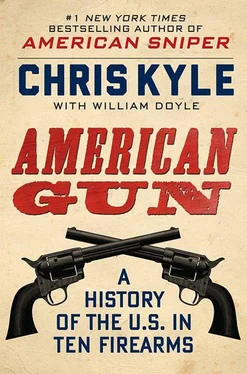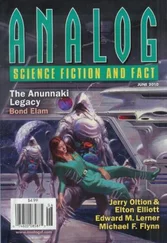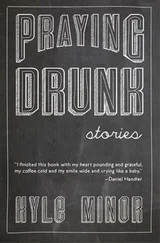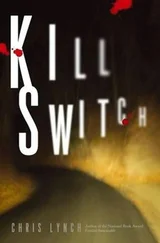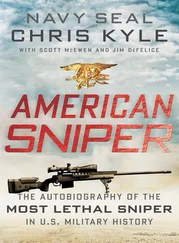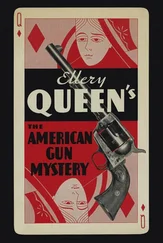The corporal had two weapons: a rifle and a handgun. The first was an M1917 Enfield bolt-action rifle, a British rival to the Mauser and Springfield that was a little cheaper to make. The second was a .45-caliber, semiautomatic Colt service revolver with the official name of “Automatic Pistol, Caliber .45, Model 1911.” It was a weapon that in the right hands could turn bad luck good. It simply kicked ass.
Just like the guy holding it.
The trapped U.S. Army corporal’s name was Alvin Cullum York, and the pickle he found himself in had materialized quicker than a New York minute. Bare moments before, the soldier and sixteen other men from Company G, 328th Infantry, 82nd Division, had surprised a group of German troops and taken them prisoner behind the lines. But before they could organize the POWs, the Americans came under concentrated machine gun fire. Nine, including the sergeant leading the three squads on patrol, fell to the ground, all dead or severely wounded.
They were spotted and pinned down by a force that outnumbered them by 20 to 1. Six Americans were shot dead.
“The Germans got us, and they got us right smart,” remembered York. “They just stopped us dead in our tracks. Their machine guns were up there on the heights overlooking us and well hidden, and we couldn’t tell for certain where the terrible heavy fire was coming from…. And I’m telling you they were shooting straight. Our boys just went down like the long grass before the mowing machine at home.”
York grew up in the mountains near the Tennessee-Kentucky border. Before the Army, he’d been a hard drinker, a brawler, and a bit of a redneck goof-off. Somehow, he’d grown into a gentle, God-fearing Christian. He’d also become a pacifist, and tried for conscientious-objector status. In fact, it had taken a long talk with his unit commander before he decided his duty as a soldier didn’t conflict with his beliefs.
Crouched on the ground, York held his bolt-action Enfield with one hand as bullets flew over his head. He waited for the machine gunner above to stop firing and look down. York was between the prisoners and the machine-gun nest, so close to the enemy that the German had to pitch the barrel down sharply to get at him. The nearby POWs made things tougher for the gunner; he had to get a good fix on his target before firing or risk killing his own people.
Sure enough, a head popped up. York squeezed the trigger.
The German disappeared, dropped by a .30-06 round from York’s rifle. York waited. Up came another head, York fired, and the enemy vanished.
“That’s enough now!” he yelled out in his hillbilly drawl.“You boys quit and come on down!”
The Germans didn’t take his advice. They’d been in the war long enough to know that his Enfield had only five rounds in the magazine, so maybe when a lieutenant and five men jumped out to take him with bayonets, they figured they had numbers on their side.
Problem was, York didn’t use his rifle next. He switched to his M1911 pistol. And instead of taking down the first man in line, which might’ve sent the others scurrying to the ground, he worked from back to front, popping them one at a time until finally it was the lieutenant’s turn. The German officer fell with a scream, gut-shot.
“You never heard such a racket in all of your life,” said York, talking about the battle after it was done. “I didn’t have time to dodge behind a tree or dive into the brush…. There were over thirty of them in continuous action, and all I could do was touch the Germans off [shoot them down] just as fast as I could. I was sharp shooting…. All the time I kept yelling at them to come down. I didn’t want to kill any more than I had to. But it was they or I. And I was giving them the best I had.”
Finally, York sensed someone behind him. He spun around to see a German officer in the woods with an empty Luger pistol. The German had been trying to shoot him, but missed every time. Spooked and sure that York would kill every last member of his unit, the man offered a deal; If you don’t shoot anymore, I’ll make them surrender.
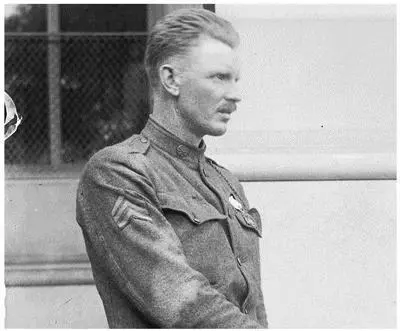
Above: Sgt. Alvin York after receiving the Medal of Honor. Below: Sgt. York in winter 1919, “standing in front of hill where 132 German prisoners were taken in Oct. 1918.”
Library of Congress
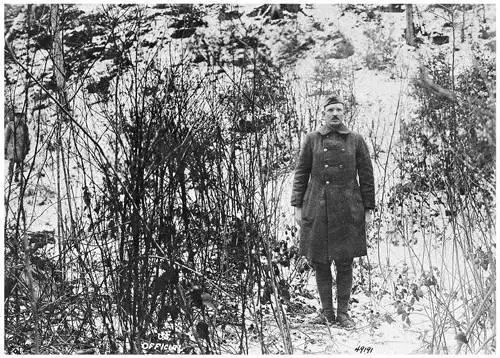
Covering the officer with his M1911, York told him to go ahead. The lieutenant blew a whistle, and fifty Germans emerged with their hands up. More followed.
One die-hard threw a grenade at York and the six other Americans who’d survived. The grenade missed. York didn’t. Another German stalled when told to leave his machine gun. York shot him, too.
“I hated to do it,” he said later. “He was probably a brave soldier boy. But I couldn’t afford to take any chance so I let him have it.”
York ordered the officer to guide them toward American lines. The mass formation marched off, with the seven Americans using the Germans as human shields. They gathered more prisoners as they went.
After they reached safety, York reported to battalion headquarters. “Well, York, I hear you captured the whole damned German army,” said his brigade commander, General Julian R. Lindsey.
“No sir,” said York. “I only have one hundred and thirty-two.”
When someone asked the corporal how he did it, he gave them a Tennessee smile. “I surrounded ’em.”
York’s shooting had been honed through thousands of hours of practice in the mountains where he’d grown up. There he’d hunted with a muzzle-loading Kentucky rifle his granddad had used. The gun was an authentic American long rifle—ball, black powder, and all. He also had an old-fashioned cap-and-ball revolver he shot for target practice while riding a mule. Like many guys from backwoods, rural America, he was a crack shot. But probably the high point of his unofficial training had to be the hidden-turkey shoot.
It went like this: York and friends would tie a turkey behind a distant log. The shooter would have to knock it down with the first shot as the bird poked its head up. That itself was pretty hard—turkey heads aren’t too big. But just to make it interesting, his friends could do anything they imagined to distract him in the act of shooting, short of actually touching him. Crack jokes, holler, whistle—it all taught York to shoot with supreme focus and aim.
A day after his tromp through the enemy lines, York went back to the scene of the battle. He was shocked by the corpses still lying there. He stopped and said a prayer for his dead friends, then thanked God for letting him live.
“I prayed for the Germans, too,” he admitted later. “They were all brother men of mine.”
As word spread, York’s actions seemed just too incredible. A thorough military investigation was launched. But eyewitnesses and German reports largely confirmed the events. York’s division commander, Major General George B. Duncan, said “the more we investigated the exploit, the more remarkable it appeared.”
A legend was born. York was soon promoted to sergeant and awarded the Congressional Medal of Honor, the Distinguished Service Cross, the Croix de Guerre, and the Legion of Honor.
“What you did was the greatest thing accomplished by any private soldier of all the armies of Europe,” declared French Commanding General Ferdinand Foch. Before returning to Tennessee, York received a ticker-tape parade in New York City and was carried on the shoulders of Wall Street stockbrokers. Offers from Hollywood, publishers, and companies seeking his endorsement streamed in.
Читать дальше
